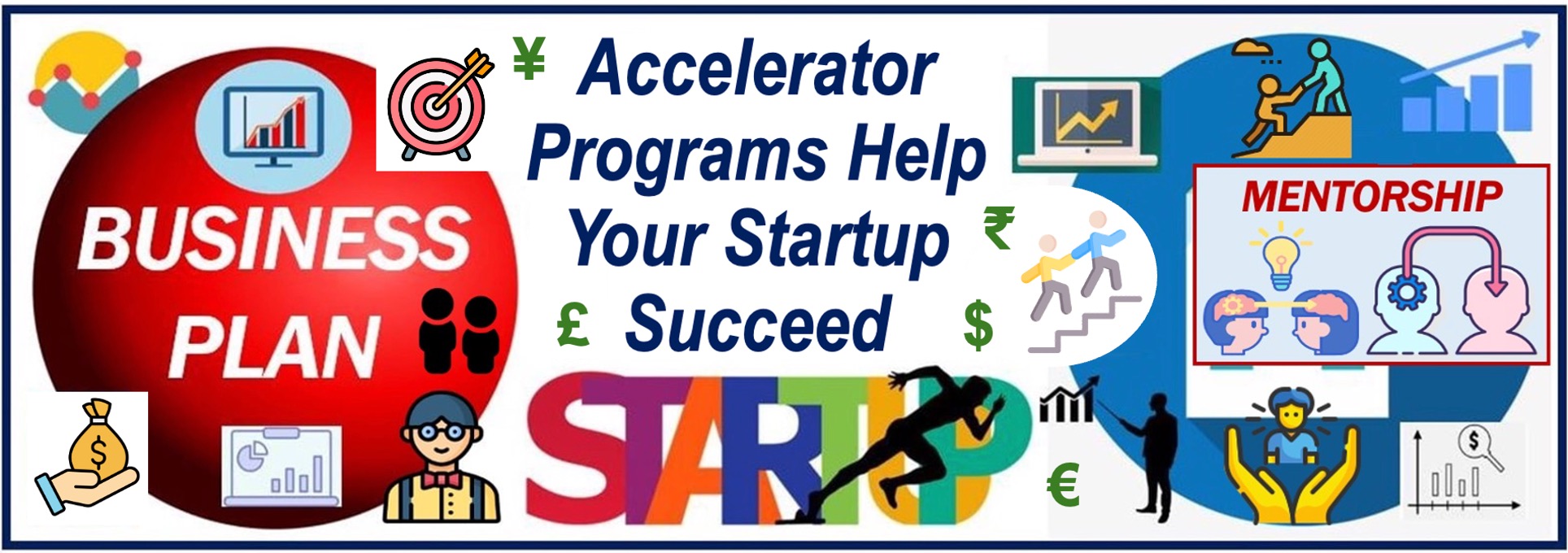Today, Startup Accelerators—also known as Seed Accelerators—are vital components of entrepreneurial ecosystems. They provide resources, mentorship, and networks to fast-track ventures during their early stages, two researchers report.
A groundbreaking study by Valentina A. Assenova, an Assistant Professor of Management, and Raphael Amit, a Professor of Management, both from The Wharton School, at the University of Pennsylvania, wrote about their study and findings in the peer-reviewed Strategic Management Journal.
They gathered and analyzed data from more than 8,500 startups across 176 nations. Their study now gives us a much deeper understanding of how accelerator program designs help startups succeed.
The Importance of Startup Accelerators
Startup accelerators, which offer guidance, know-how, structured educational programming, and *seed capital, have become pivotal for the initial growth and success of many early-stage ventures.
* Seed capital refers to money invested in a project or business during its very early stages. We often refer to this period as the ‘idea stage’ or ‘conceptual stage.’
Assenova and Amit found that startups were more likely to raise venture capital and expand their workforce if they participated in accelerator programs.
-
Definition of Startup Accelerator
In an article published by the Harvard Business Review, Ian Hathaway defined startup accelerators as follows:
“Startup accelerators support early-stage, growth-driven companies through education, mentorship, and financing. Startups enter accelerators for a fixed period of time, and as part of a cohort of companies.”
“The accelerator experience is a process of intense, rapid, and immersive education aimed at accelerating the life cycle of young innovative companies, compressing years’ worth of learning-by-doing into just a few months.”
-
Maximizing Benefits
Accelerator participation increased startups’ revenue, their ability to raise top talent through higher salaries, as well as their capital-raising capabilities, the authors reported.
Lead author, Valentina A. Assenova, said:
“Our findings underscore the importance of program design in maximizing the benefits of accelerator participation.”
“By tailoring their offerings to the unique needs of startups—whether by industry, stage of development, or founder experience—accelerators can unlock the full potential of these ventures.”

Entrepreneurs, Investors, & Policymakers
If you are an entrepreneur who is seeking to leverage accelerators to refine your business models and scale effectively, you will find this study interesting and useful. It will provide you with actionable insights.
Investors and policymakers may also find that the study’s results and conclusions support high-impact programs and customized resources for newly formed enterprises, particularly in emerging markets where entrepreneurial ecosystems are still maturing.
These insights could help guide investments and policy decisions that foster sustainable business growth and innovation.
In an Abstract in the journal, the authors concluded:
“Our findings highlight the impact of program design on the benefits that startups derive from accelerator participation.”
About the Study
Amit and Assenova gathered and analyzed data from the Global Accelerator Initiative, which encompassed 23,364 accelerator applicants from 2013 to 2019.
The researchers employed comparative assessments of accelerated and non-accelerated startups and other rigorous methodologies to determine which factors contributed to their post-program success.
Citation
Assenova, V. A., & Amit, R. (2024). Poised for growth: Exploring the relationship between accelerator program design and startup performance. Strategic Management Journal, 45(6), 1029-1060. https://doi.org/10.1002/smj.3581

